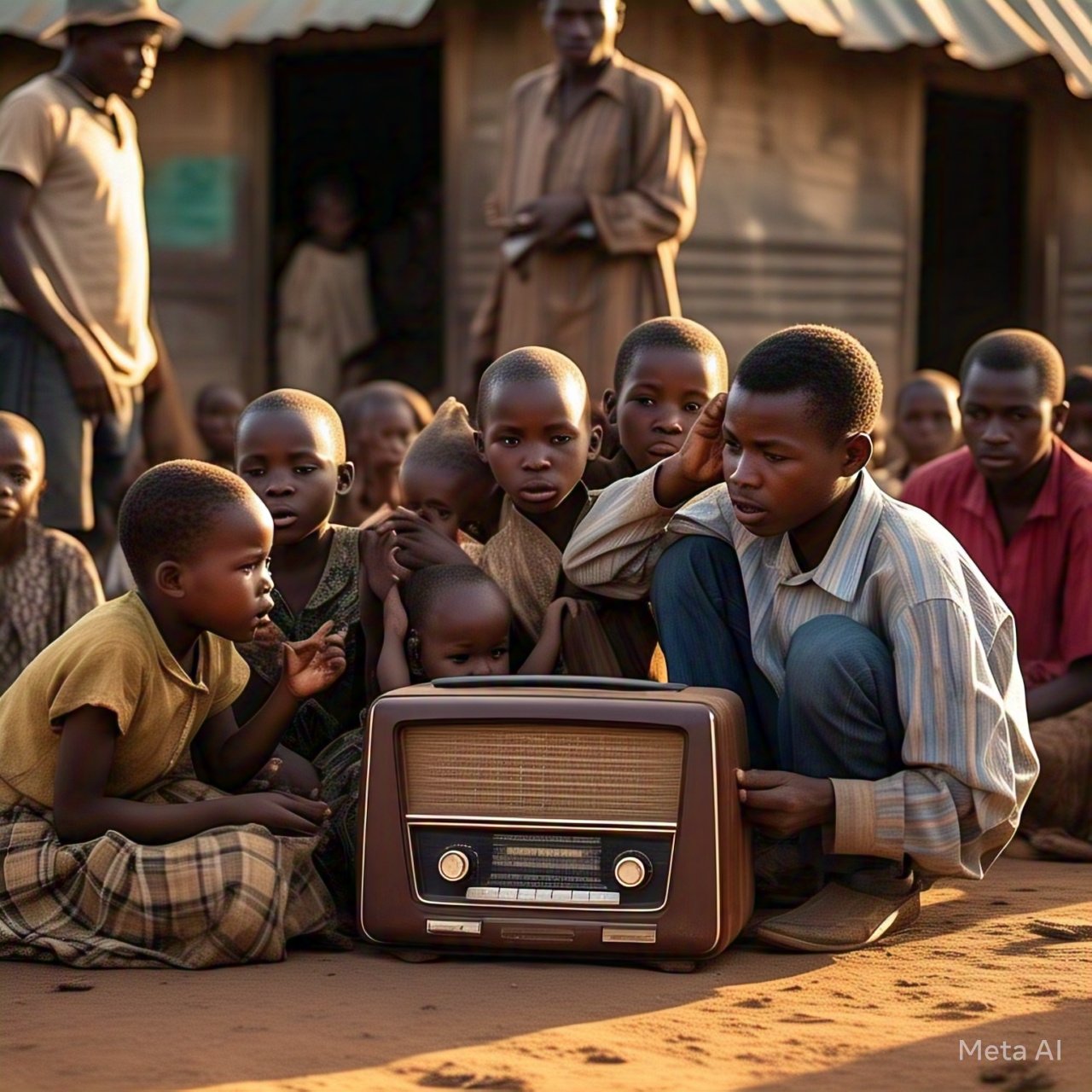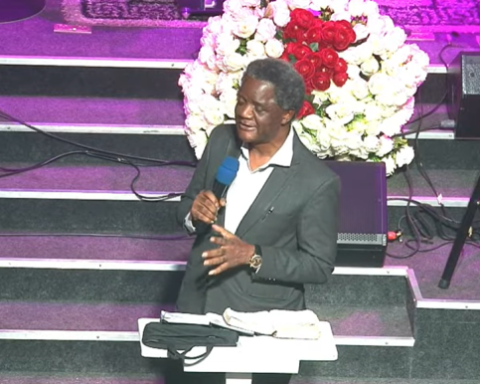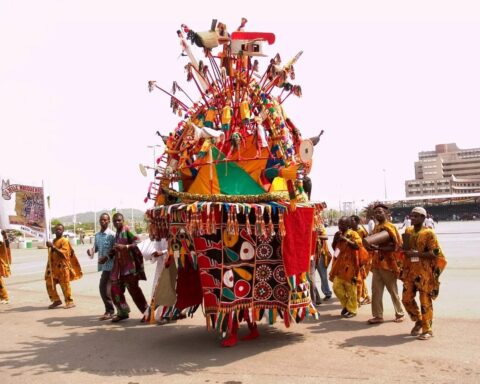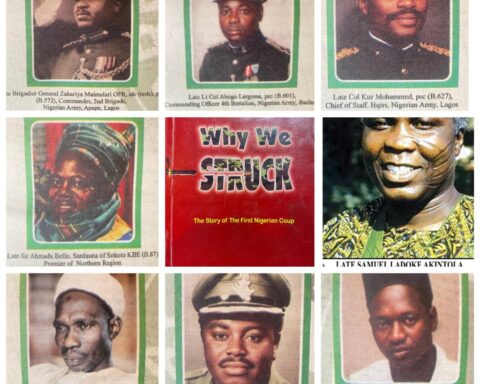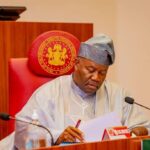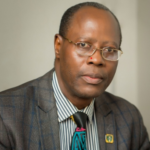Dr Charles Obiajulu Ugwu
The Spectacle of a Nation Unraveling
There comes a time in the history of a people when reality must be confronted, no matter how discomforting. Nigeria, a nation brimming with potential, is caught in a terrifying descent, ensnared in a perverse power game that thrives on contradiction, manipulation, and impunity. The land once heralded as the ‘Giant of Africa’ now teeters on the edge of moral and institutional collapse, held hostage by an entrenched elite that wields power not as a tool for progress but as an instrument of systematic decay. From politics to the military, religious circles to financial institutions, public services to traditional structures, the country’s power centers have become fortresses of organized dysfunction. Nigeria’s tragedy is not merely in its failures, but in the normalization of its absurdities.
Chains of Absurdities: A Nation at War with Itself
To grasp the depth of Nigeria’s predicament, one must first understand the chains of absurdities that sustain its decline. Consider a country where corruption trials last decades while convicts walk free, honored and celebrated. A nation where the so-called anti-graft agencies like the Economic and Financial Crimes Commission (EFCC) are wielded as political weapons rather than enforcers of justice. Where public officials facing corruption allegations not only retain their positions but are sometimes rewarded with even higher offices. The cycle of impunity is so robust that even when one scandal is exposed, it is quickly buried under the weight of another, leaving no room for justice or accountability.
Take, for instance, the brazen reappointment of individuals under corruption investigations into critical public positions. This anomaly has reached a point where ethical misconduct is no longer a career-ending offense but rather a badge of political survival. Nigeria’s political landscape is rife with individuals who have looted public funds, yet they dictate the nation’s direction without consequence.
The security apparatus is not left out. The police and allied agencies, meant to be custodians of law and order, have become enablers of lawlessness. Reports of extrajudicial killings, bribery, and collusion with criminal elements are commonplace. SARS (Special Anti-Robbery Squad), now infamous for its brutality, was merely a symptom of a larger problem the militarization of civic spaces where uniformed officers, instead of protecting citizens, extort and oppress them with impunity. Even the military, once revered, has found itself mired in corruption scandals involving the misappropriation of funds meant for national defense.
Institutionalized Anomalies and the Theater of Power
The judiciary, once the last hope of the common man, has largely become an auction house where justice is reserved for the highest bidder. The financial sector, originally designed to drive economic growth, has been hijacked by power brokers who manipulate currency rates, engineer fraudulent schemes, and keep the masses impoverished while amassing inconceivable wealth.
Meanwhile, the civil service often regarded as the engine room of governance has become a breeding ground for nepotism and inefficiency. Ministries, departments, and agencies operate as fiefdoms controlled by a cabal of entrenched bureaucrats who view public resources as personal entitlements. Policies are designed not for national development but for patronage, ensuring that a select few benefit while the majority remain locked in the vicious cycle of poverty.
Religion and traditional authorities, which should serve as moral compasses, have not been spared from this rot. Many religious leaders, rather than guiding the nation’s conscience, have become active participants in the power game, aligning with corrupt politicians and business moguls for personal gain. Traditional rulers, once custodians of cultural integrity, now preside over communities where their influence is traded for political favors, often at the expense of their people’s well-being.
In perhaps the most absurd manifestation of the power theater, security forces including police, military, and paramilitary agencies—have become personal enforcers for the elite while the ordinary citizen is left defenseless. A staggering percentage of Nigeria’s police force is assigned to guard politicians, business tycoons, and other high-net-worth individuals. From senators to local government chairmen, every officeholder has a retinue of security personnel at their beck and call, while rural communities and urban neighborhoods are left vulnerable to bandits, kidnappers, and armed robbers. Reports indicate that over 150,000 police officers are attached to VIPs, leaving less than half of the force to serve a population of over 200 million. The consequence? An explosion of insecurity, with everyday Nigerians forced to fend for themselves while those meant to protect them are preoccupied with chauffeuring the privileged around in bulletproof convoys.
The Downward Spiral: Why Nigeria is Failing
One might ask: how did Nigeria find itself in this abyss? The answer lies in the self-reinforcing nature of its contradictions. The power elite have perfected a system where dysfunction serves their interests. Policies are intentionally vague, accountability structures are weak, and institutions meant to check excesses are compromised from within. Those who dare to challenge the system are either co-opted, silenced, or neutralized.
Consider the economic paradox. Despite being Africa’s largest economy, Nigeria remains home to one of the world’s highest concentrations of extreme poverty. The World Bank estimates that over 95 million Nigerians live below the poverty line, even as the country’s elite continue to flaunt opulence. How does a resource-rich nation struggle with fuel scarcity, epileptic power supply, and crumbling infrastructure? The answer is simple: these crises are profitable for those who control them.
Perhaps the most insidious form of institutionalized anomaly is the political absolution of wrongdoing. In Nigeria, all it takes to be absolved of corruption or criminal allegations is to align oneself with the ruling party. Once a politician defects to the party in power, ongoing investigations vanish, trials stall indefinitely, and previously damning accusations become irrelevant. The list of former opposition figures who have miraculously found redemption upon crossing over is endless. It is an unwritten rule: political allegiance, not integrity, determines one’s fate.
The political class thrives on chaos. Electoral processes are deliberately designed to be expensive, excluding competent individuals who lack access to illicit wealth. Violence is an accepted tool for winning elections, and the judiciary, which should arbitrate disputes, often bows to political influence. The more dysfunctional the system, the more entrenched the status quo remains.
The Path Forward: Breaking the Chains
Nigeria’s descent is not irreversible, but halting it requires an unprecedented shift in national consciousness. This is not merely about voting in new leaders; it is about dismantling the very structures that sustain corruption, mediocrity, and impunity. Citizens must demand systemic change, not cosmetic reforms. The fight must extend beyond social media outrage to grassroots mobilization and civic engagement.
A nation held captive by its own descent can only be rescued by its people. The battle is not just for the activists or the opposition it is for every Nigerian who dreams of a country where integrity is rewarded, where justice is blind to status, and where power is a tool for progress rather than oppression.
The question is no longer whether Nigeria is in crisis; the question is whether Nigerians are ready to confront the crisis head-on. History has shown that nations do not collapse in a single day; they erode gradually until there is nothing left to salvage. The time to act is now. Nigeria must decide whether it will continue to spiral into the abyss or reclaim its place as the beacon of Africa.
The choice, as always, lies in the hands of its people.
Follow us on all social media platforms @dailyquery for news and analyses around the globe.
